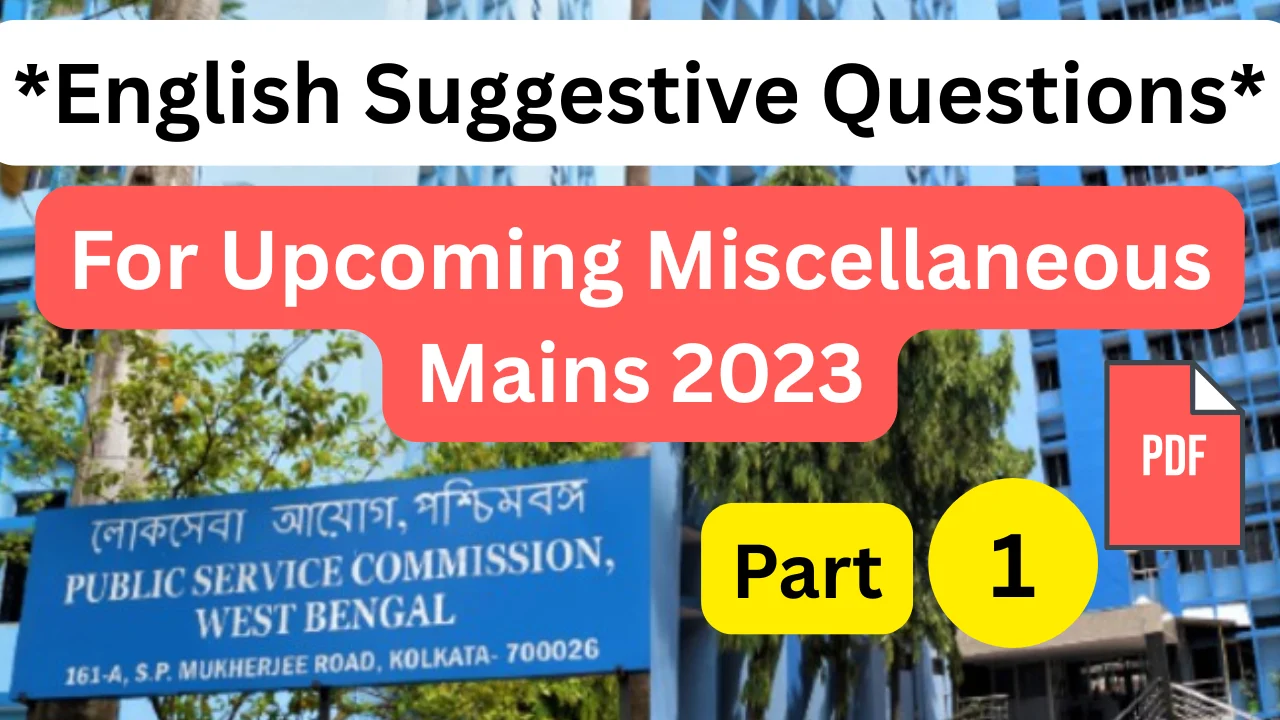For Personalized English Coaching, Whatsapp: 7872728272
4. Fill in the blanks in each sentence with the correct alternative from options within brackets: 2×5=10
1. The committee members always _________ the proposal after a long discussion. (approves, approve, approving)
2. She has been _________ classical music since she was a child.
(learn, learning, learnt)
3. Neither the teacher nor the students _________ present in the room.
(was, were, is)
4. This novel _________ an interesting insight into rural life.
(gives, gave, giving)
5. The roads were wet because it _________ all night.
(rains, rained, had rained)
6. Scarcely _________ the speech begun when the power went out.
(A) had (B) has (C) did
7. No sooner _________ the train arrived than the passengers rushed out.
(A) had (B) has (C) did
8. The manager demanded that every employee _________ punctual.
(A) be (B) is (C) was
9. Had he worked harder, he _________ the scholarship.
(A) will get (B) would have got (C) would get
10. Little _________ she know about the surprise waiting for her.
(A) did (B) had (C) does
Answers:
1. The committee members approve the proposal after a long discussion.
✅ Explanation: The sentence refers to a completed action in the present indefinite, so “approve” is correct.
2. She has been learning classical music since she was a child.
✅ Explanation: “Has been” + present participle (verb + -ing) forms the present perfect continuous tense, which describes an action that started in the past and is continuing.
3. Neither the teacher nor the students were present in the room.
✅ Explanation: In a “neither…nor” construction, the verb agrees with the subject closer to it. “Students” is plural here, so we use “were”.
4. This novel gives an interesting insight into rural life.
✅ Explanation: “This novel” is singular, and the action is in the present tense, so we use “gives”, the singular form of the verb.
5. The roads were wet because it had rained all night.
✅ Explanation: The wet roads are a result of something that happened before a point in the past, so we use the past perfect tense (“had rained”).
1. Scarcely _________ the speech begun when the power went out.
(A) had (B) has (C) did
✅ Correct Answer: (A) had
Explanation: “Scarcely” is followed by the past perfect tense in formal grammar:
“Scarcely had the speech begun…” is correct. Inversion is used for emphasis.
2. No sooner _________ the train arrived than the passengers rushed out.
(A) had (B) has (C) did
✅ Correct Answer: (A) had
Explanation: The structure is:
“No sooner had + subject + past participle… than…”
This is a classic inverted sentence pattern.
3. The manager demanded that every employee _________ punctual.
(A) be (B) is (C) was
✅ Correct Answer: (A) be
Explanation: This uses the subjunctive mood, which is common in formal English after verbs like “demand,” “suggest,” or “insist.”
The subjunctive form of “be” remains “be” for all subjects.
4. Had he worked harder, he _________ the scholarship.
(A) will get (B) would have gotten (C) would get
✅ Correct Answer: (B) would have gotten
Explanation: This is a third conditional structure — imagining a different past.
Structure: Had + past participle → would have + past participle
5. Little _________ she know about the surprise waiting for her.
(A) did (B) had (C) do
✅ Correct Answer: (A) did
Explanation: “Little” at the beginning of a sentence triggers inversion — the auxiliary verb comes before the subject.
Hence: “Little did she know…”
